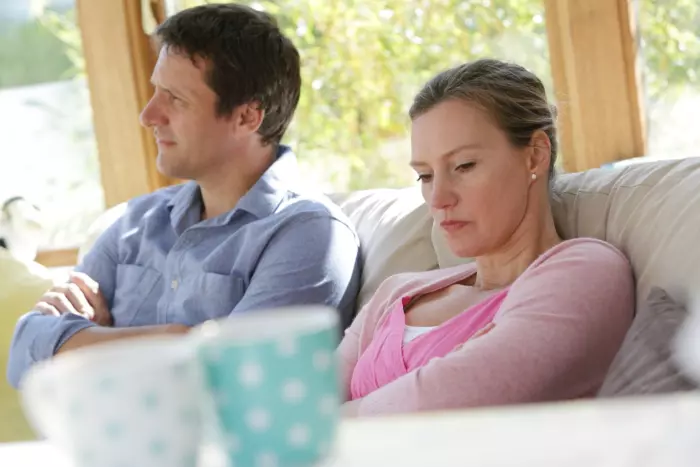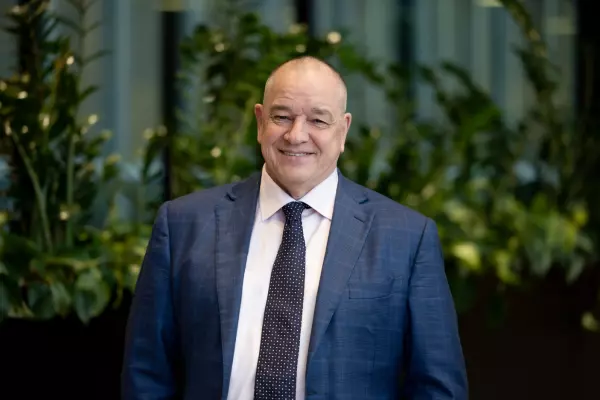BusinessDesk investments editor Frances Cook responds to emails from readers each week to answer questions about money. Below, you will find her expert advice. Send your own questions to [email protected].
Hi Frances,
I am in my early 30s and a homeowner in Wellington. I HATE it.
It's been painful scraping a deposit, failing to buy existing homes (always beat out on price), and then while building a new home, our builder went bust.
Even if we had an easier time getting a house, I still feel a bit trapped with one.
My partner firmly believes home ownership is the most important element to financial security in New Zealand. Is it?
Thank you!
J
Hi J,
It sounds like you’ve had a wild ride on the path to home ownership. That might have changed how you feel about it a bit.
First, spoiler alert, no, I don’t think home ownership is the most important element to financial security in NZ. We’ll get to that soon.
But first, I want to address something more important that's happening here.
It’s not just money
The biggest red flag for me here is not the pros and cons of home ownership. It’s that you and your partner seem on totally different pages about what you want for your financial future. You also say you feel trapped.
That is a huge red flag.
Money is the number one cause of relationships ending. It’s rarely just the numbers that cause the problem.
It’s that money is how you achieve the things that you want out of life. There is usually only so much money, so you have to choose together where you want to put that effort and what goals you want to achieve.
Your partner may want a home because, to them, it signifies stability, independence from a landlord, and a more comfortable retirement.
They may want a pet like a large dog or to raise children in a home, knowing that the landlord can’t decide to put the house on the market and you need to move.
Those are all great goals, but you can see already how many emotional layers there are to this. This debate is about so much more than money.
It’s security, it’s life goals, it’s family. It’s putting down roots.
Meanwhile, you feel trapped by those same roots.
You might want to travel or be able to move for a new job opportunity, or you might just feel burned out and distrustful of the property market and not want the responsibility.
Those are all fair goals, too. But they are entirely different goals and with entirely different feelings attached to them.
Time to chat
I would suggest setting some time aside to talk about this properly, both knowing what the conversation is going to be about and coming into it calmly and ready to see the other’s point of view.
You do not want this conversation to be sprung on your partner at the end of a long, stressful day. There are few guarantees in life, but I can guarantee that it won't go well.
Pick a time that works for both of you; Saturday morning after you’ve made pancakes together, or Monday evening after you’ve finished dinner, or whenever else works.
Feel free to bring some sort of treat to share; chocolate, cake, whatever. Bribery is good. You need to try to relax what has the potential to be a tough conversation.
Once you’ve scheduled the conversation for a time that works, you both have homework to do before the conversation actually happens.
Go away, by yourself, with a piece of paper and a pen.
Then write down how homeownership makes you feel. The future goals it helps with, and which future goals it gets in the way of.
What goals do you have for your future, and why? Be honest.
You can’t have everything you want when you’re in a relationship and trying to figure out a life together. Of course, there’s always a compromise.
But you should at least understand what both of you want and why. Then it’s time to figure out if there’s a way both of you can get a solution that you’re happy with.
The numbers
Ok, now, in terms of whether you have to have a house in order to be financially stable in NZ.
No, you don’t. But there are certain pros and cons to think about, and I think being aware of those will help the conversation you need to have with your partner.
Renting in NZ can be quite unstable. Personally, I hated it.
Your house is inspected regularly, rental prices go up, and there may be rules about things like whether you can have a pet.
Some landlords are great, and some are shockers. If you get a shocker, they have enormous power over your life.
However, that instability can also be a strength. If you want to leave to go travelling for a decent length of time, you can end your lease and not have to keep paying a mortgage back home.
Or if you get an offer for a dream job elsewhere, you can pack up and go without worrying about the lengthy process of selling a house.
In terms of the financial aspects, yes, a house can be a significant asset.
Your own home doesn’t make you money as such, but it does save you a lot of money once it’s paid off. Housing is often the biggest part of anyone’s budget, so a paid-off mortgage is a huge cost saving.
It’s not entirely free, though. You would still need to be paying things like insurance, rates, and maintenance.
You can also use a home as an asset that helps you build other assets.
A classic in NZ is using your home in order to buy an investment property. The bank will let you use the equity in your home in order to buy a new property that you rent to other people, making you money.
You can also go through the same process to get lending in order to start a business if you choose to do that.
So while it doesn’t make money as such, you can certainly use it in many different ways to boost your financial security.
You’ve already done what is the hardest part for most people. You secured a home.
I’ve talked to some people who sold a house, planning to buy back in later, then watched as house prices increased and they couldn’t afford to buy back in.
Have a careful think about whether that could happen to you and how it would make you feel.
Now that you’ve bought one, in the future, you wouldn’t be able to use your KiwiSaver as part of a home deposit. That’s only available for people buying their first home.
You can, however, have financial security without a home.
It will require a plan that you are committed to. For most people, this means investing in something like the share market.
Shares actually go up in value more than housing does. They also make money for you, whether it’s from dividends or from the value going up and you selling some of them for a profit.
Some people choose to invest without ever buying a home, with the plan to use the money from those investments to pay their rent later in life. That plan can work very well for some people.
I would note that it’s impossible to say how much rent prices might go up in the future. So even if you invest a lot, it’s hard to know if it will be enough to pay future rent prices reliably.
There is another pitfall, in that nobody will force you to keep investing in shares, the way you’ll be forced to keep paying off the mortgage.
Don’t feel like paying off a chunk of your mortgage one week? Too bad, the bank has your number.
Don’t feel like investing the same amount into shares that week? Sure, whatever, nobody will force you.
So if you choose this road, make sure you set up something like an autopayment into your investments so that you can’t forget it and end up with absolutely no assets at all.
You could also consider different options for the house you have now if you’re feeling trapped and like you don’t want to live there in future.
You could turn it into an investment property if you want to live elsewhere in NZ or even go travelling.
If there’s room, you could bring in a flatmate or allow someone with a tiny home to rent the back garden. This money could be used to pay off the mortgage faster or go into other investments that you use to build financial security.
I don’t want you to feel trapped, but there are ways to use what you have in a different manner.
You don’t need to chuck it all in the air and run away. You can simply change strategies so that you keep building on what you have, but in a way that works better for whatever your goals are.
You need something, some asset, whatever it is if you want to have a comfortable retirement. Whatever you do, please don’t rely on the pension alone.
A pension barely covers rent for older people now, and I dread to think how it will be in the future.
Bottom line
Have a think about these issues. It could be that you had such a horrible time trying to become a homeowner that you’re simply over it all. Something like that might be fixed by just giving yourself some time to recover.
Or it could be that homeownership doesn’t fit with what you want right now, and that’s fair enough.
But you can’t bury these issues and hope they go away.
That’s the way that resentment grows, and resentment is a really powerful negative force.
So set a time for that calm conversation when you can both talk about the why and how you’re feeling what you’re feeling. Then at least, it’s all on the table.
Send questions to [email protected] if you want to be featured in the column. Emails should be about 200 words, and we won't publish your name. Unfortunately, Frances is not able to respond to every email received or offer individual financial advice.
Information in this column is general in nature and should not be taken as individual financial advice. Frances Cook and BusinessDesk are not responsible for any loss a reader may suffer.














